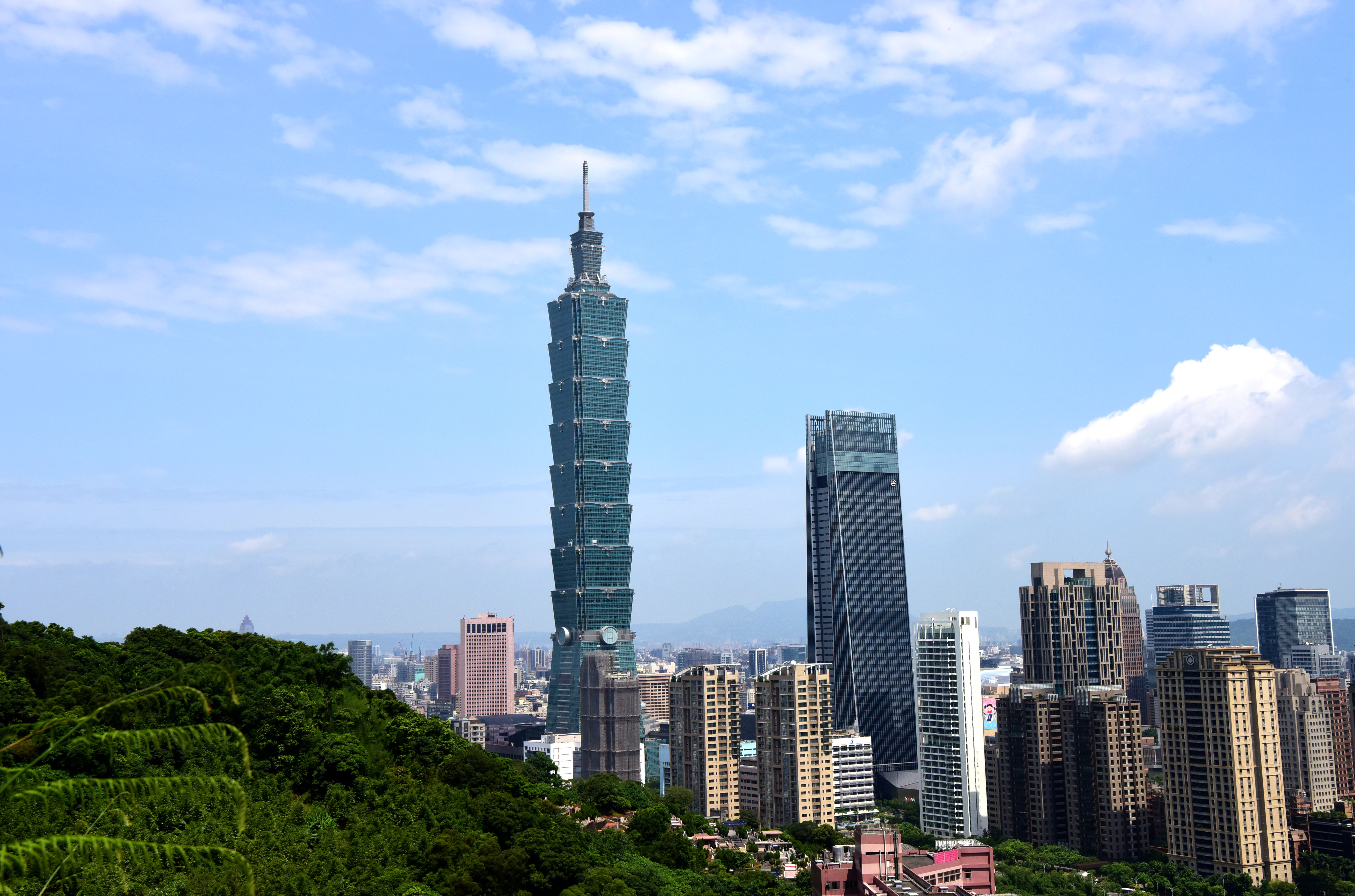
The Taipei 101 skyscraper in Taipei, southeast China's Taiwan, July 21, 2019. [Photo by Zhu Xiang/Xinhua]
By Zhou Wenxing
Kurt Campbell, deputy assistant to the U.S. president and coordinator for Indo-Pacific affairs on the National Security Council, made it clear that "we do not support Taiwan independence" during an online discussion hosted by the Asia Society Policy Institute on July 6. He stressed that the Joe Biden administration fully recognizes the sensitivities of cross-Taiwan Straits relations and does not plan to significantly alter the U.S.'s Taiwan policy.
This is the first time that the Biden administration has explicitly expressed its policy attitude toward so-called "Taiwan independence," indicating that the democratic administration reaffirms the U.S.'s one-China policy that previous administrations adhered since the 1970s. This carries important policy implications in the context where China-U.S. relations and cross-strait relations are so strained.
Firstly, it contributes to ease the tension across the Taiwan Straits. Since China-U.S. relations deteriorated dramatically when former President Donald Trump was in office, the U.S. government has been unprecedentedly "supporting" the so-called independence-leaning "authorities" of the Democratic Progressive Party (DPP) to deter the Chinese mainland. The collusion of the U.S. and China's Taiwan further complicates the Taiwan issue. Kurt's interpretation of U.S. Taiwan policy aims to rebalance U.S.-China ties, and therefore reduces the straining relations across the Straits.
Secondly, it may pave the way for engagement and dialogue between China and the U.S. While different from the one-China policy that China has been advocating, the U.S.-endorsed one-China policy still works as the political foundation for China to establish and maintain diplomatic relations with the U.S. But the U.S. side has been hollowing out the one-China policy and inevitably influenced the development of the bilateral ties. What Kurt said helps to regain strategic trust from China, taking an important step toward a constructive relationship for the world's two largest economies.
Lastly, it is beneficial to regional stability and peacebuilding. Following the U.S.'s footsteps to deter China, Japan and Australia have recently become increasingly active and eye the Taiwan issue as one of the most important means to achieve their goal. For example, Japanese Deputy Prime Minister and Finance Minister Taro Aso commented on July 5 that Japan would join the U.S. in defense of the Taiwan region. Both Japan and Australia's policy change on the Taiwan issue would bring uncertainties to the region. The articulation of the Biden administration's Taiwan policy would then moderate its allies' policy concerning the Taiwan issue.
However, Kurt's remarks also reflect some limits of the Biden administration's Taiwan policy.
One of the key limits is that the U.S.'s words are not matched by its deeds. The Trump administration also stressed in 2017 that it adhered to the one-China policy. But what the world later saw is a growing number of large U.S. arms sales to Taiwan and pro-Taiwan legislation produced by U.S. Congress. By doing so, the U.S. has been hollowing out its one-China policy without speaking it out.
That's why Daniel Russel, former assistant secretary of state for East Asian and Pacific affairs, and some other American experts are so worried about the trajectory of the current Taiwan policy. They believe that the U.S. government is edging closer to the line between "unofficial" and "official relations" with China's Taiwan.
The U.S. needs to be aware of these worries and cautiously deal with this longtime flash point. But to handle well this issue, the U.S. must practice what it preaches.
Should it continue its current inconsistent policy, the U.S. is more likely to be caught in a "dangerous balance" between advocating for Taiwan's role on the global stage and avoiding a military confrontation with the Chinese mainland, as Kurt confessed during the discussion. A delicate balance out of such a "dangerous balance" necessitates true U.S. adherence to the one-China policy.
The author is a research fellow at the Huazhi Institute for Global Governance, Nanjing University, and former Asia Fellow at the John F. Kennedy School of Government, Harvard University.

 中文
中文



